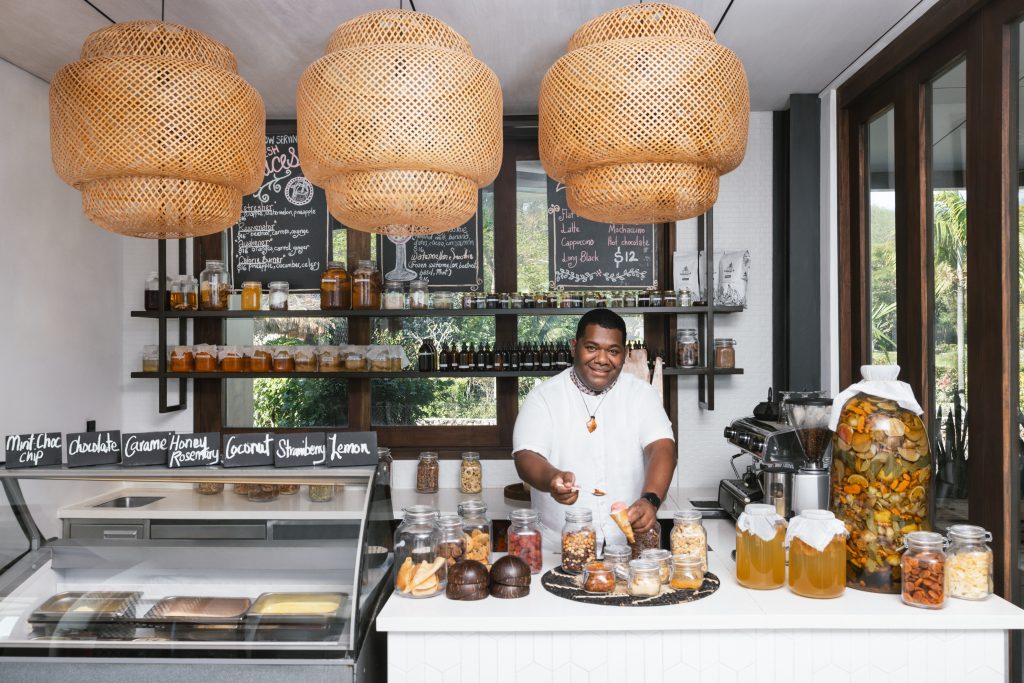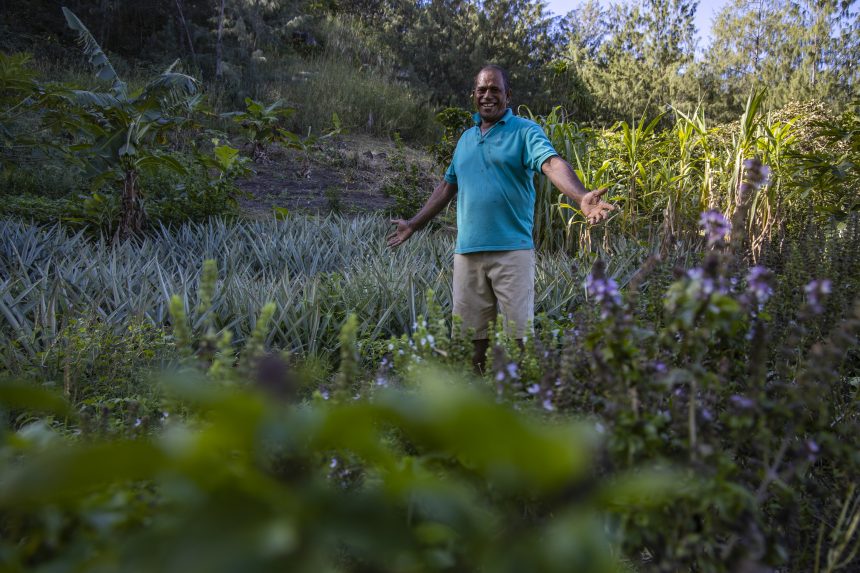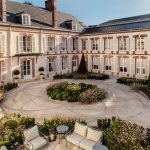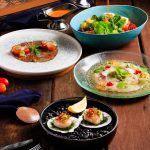From cultivating fresh produce in the gardens to sourcing local and seasonal ingredients, reducing energy and water usage, managing waste responsibly, or hiring and empowering local hosts, sustainability drives decisions.
As members of the South Pacific Tourism Organization (SPTO), Six Senses Fiji are part of a larger movement promoting sustainable tourism practices across the Pacific Island. Together, they endeavor to positively impact local communities, preserve cultural heritage, and protect the breathtaking environment that makes the region unique.
Nestled on Malolo Island, the resort blends traditional Fijian architecture with eco- innovation:
- Renewable energy: 25% of electricity is generated by solar panels, with energy-efficient systems and electric buggies reducing the resort’s footprint.
- Marine & Wildlife Conservation: In 2023, 10,900 coral fragments were planted to restore local reefs in collaboration with Coral Gardeners, while housing on-site iguanas in their natural habitat has helped grow the population of the critically endangered Fijian Crested Iguana.
- Zero-Waste Commitment: On-site glass water bottling, food waste repurposed for local villages, and upcycled materials like coffee grounds for spa products promote circular sustainability.
- Community & Reforestation: The resort supports local villages with clean water, school supplies, and tree-planting initiatives through its Sustainability Fund.
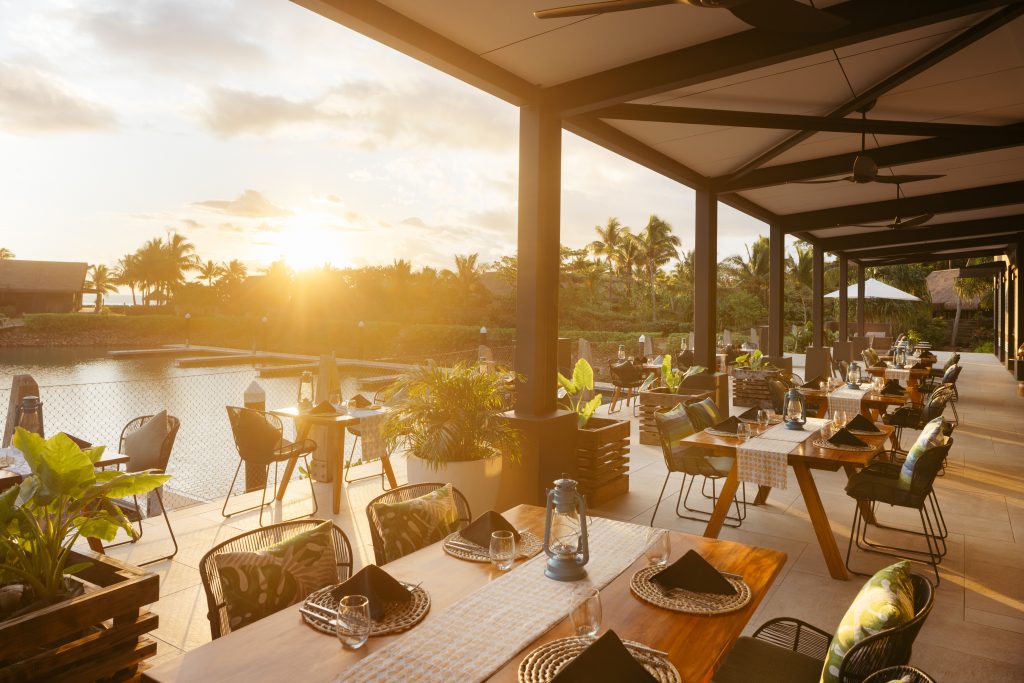
Design, Architecture & Tradition
▪ The resort was designed to reflect the traditional Fijian villages, surrounded by abundant vegetation, seamlessly blending into the island environment.
▪ Villas and residences combine comfort and luxury, featuring simple yet elegant high-gabled thatched roofing and louvered timber windows that merge contemporary architecture with Fijian tradition.
▪ Local designs and natural materials are integrated throughout the resort, paying homage to the Fijian heritage. Examples include timber joins wrapped with magimagi, and walls adorned with masi and vocevoce.
▪ The use of locally sourced stones and native hardwoods, along with exquisite furnishings and open floor plans, create organically elegant interiors with spacious lounging areas.
▪ Exterior lighting was thoughtfully designed to minimize disruption to the nocturnal environment and wildlife behaviour.
▪ A monumental native baka tree serves as a centerpiece, located in the Green Belt, symbolizing our commitment to preserving and regenerating the traditional rainforest habitats in the Mamanuca Islands.
▪ Fijian traditions and cultural heritage are celebrated through decorative elements and themed nights featuring Lovo feast and Meke dances, offering guests an immersive experience in local authenticity.
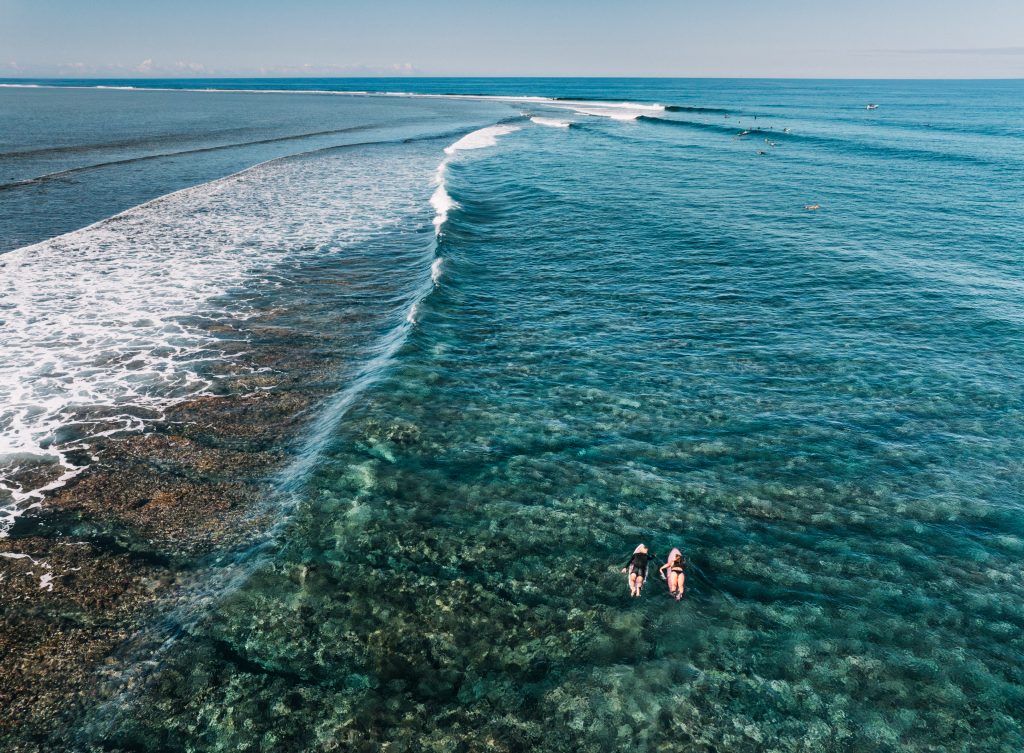
Energy Conservation
By combining different sources of energy and implementing measures to minimize its consumption, Six Senses Fiji reduces its impact on the environment.
▪ All areas were designed to optimize daylight and natural ventilation, reducing the need for energy consumption.▪ In 2023, renewable energy production from solar photovoltaic panels supplied approximately 25% of the electricity used in the resort.
▪ A building management system (BMS) is in place to monitor and control various mechanical and electrical systems, ensuring optimal energy usage.
▪ LED technology is used for lighting, promoting energy efficiency across the property.
▪ All pools are equipped with low-energy filtration systems.
▪ Energy-efficient boilers are used for hot water generation, using less energy.
▪ Accommodations are pre-set to 24ºC before guest arrival, and equipped with sensors to automatically switch off air-conditioning when doors are opened.
▪ Solar hot water systems are installed in new host accommodations, further reducing reliance on traditional energy sources.
▪ 100% electric buggies are used across all resort operations.
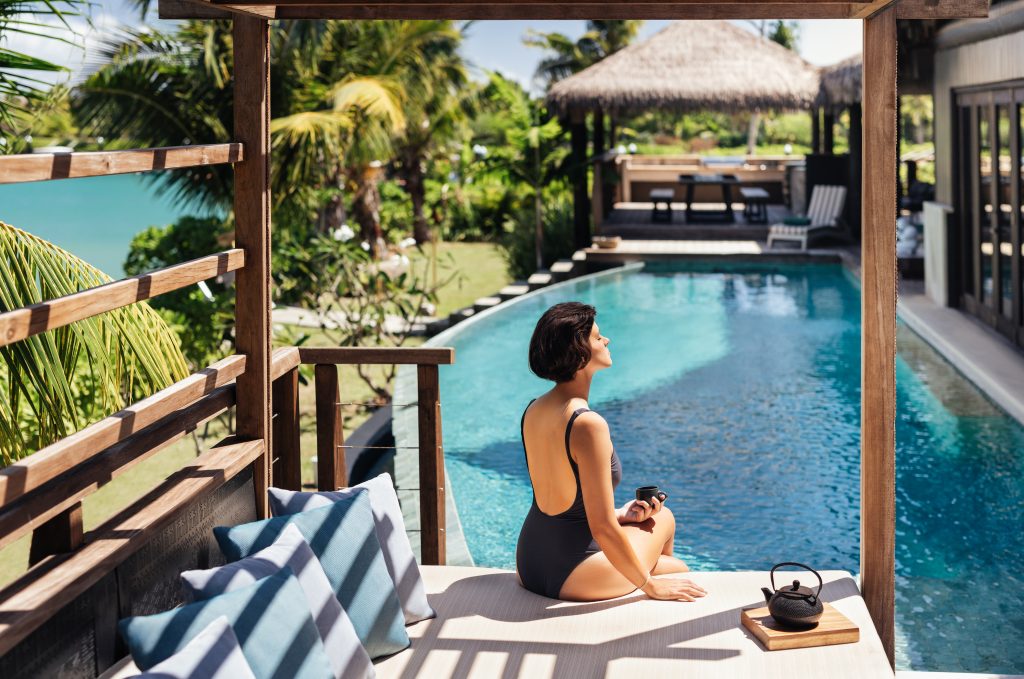
Water, the Most Precious Resource
▪ The resort relies on desalinated water for its operation.
▪ All bathrooms feature efficient showerheads, faucets, and toilet flushing systems, enabling water savings without jeopardizing the guest experience.
▪ The linen and towels change policy implemented makes it possible to reduce the frequency of bed linen and towel washes, leading to lower water consumption.
▪ On-site treatment of all resort wastewater using a worm-based septic system ensures responsible management, with greywater repurposed for irrigation.
▪ A rainwater collection tank (190,000 L) is installed to harvest rainwater for irrigation purposes.
▪ A pond to collect rainwater is maintained to support additional water needs.
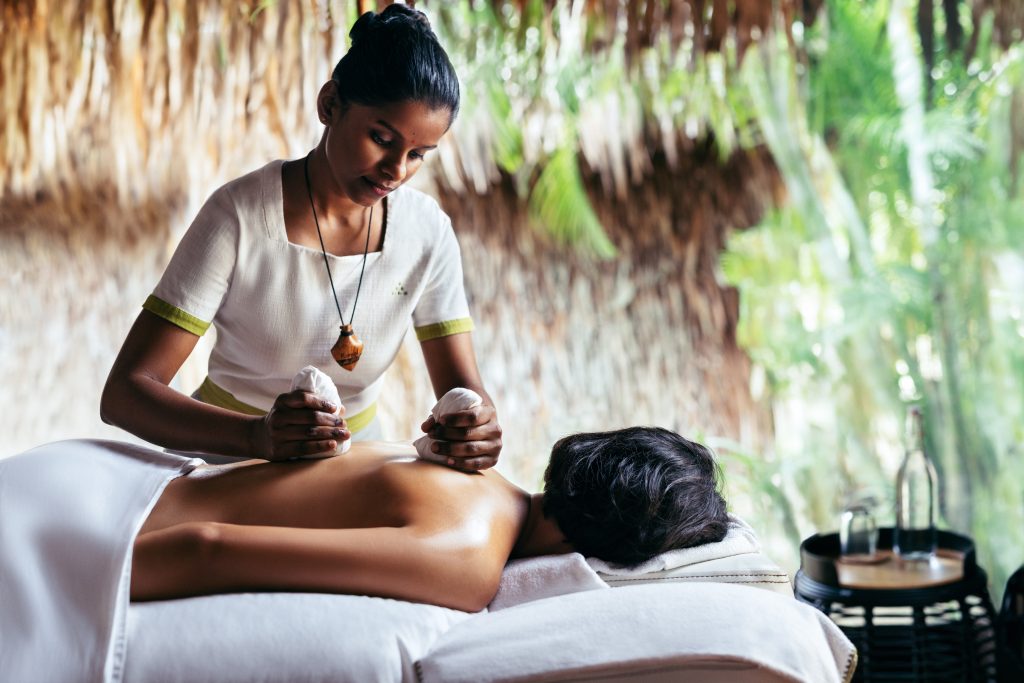
Strategic Waste Management
Waste is only waste if one believes it holds no more value. Six Senses aims to reimagine the value of materials, and to operate closer to zero waste, meaning none or little waste sent to landfills. Waste management is pivotal in minimizing the environmental impacts of our operation.
▪ A comprehensive Waste Management Plan is implemented, detailing waste categories, collection points, contracted companies, and responsible personnel.
▪ Organic waste is processed on-site to produce compost or mulch, which is used in the organic garden.
▪ Food waste is redirected to the local village to feed the pigs, minimizing waste while benefiting the community.
▪ Used coffee grounds from the kitchen are upcycled in our Alchemy Bar to create natural body scrubs.
▪ The hotel bottles its drinking water served in guest rooms and dining venues using glass bottles, eliminating plastic bottle consumption, and reducing the carbon footprint.
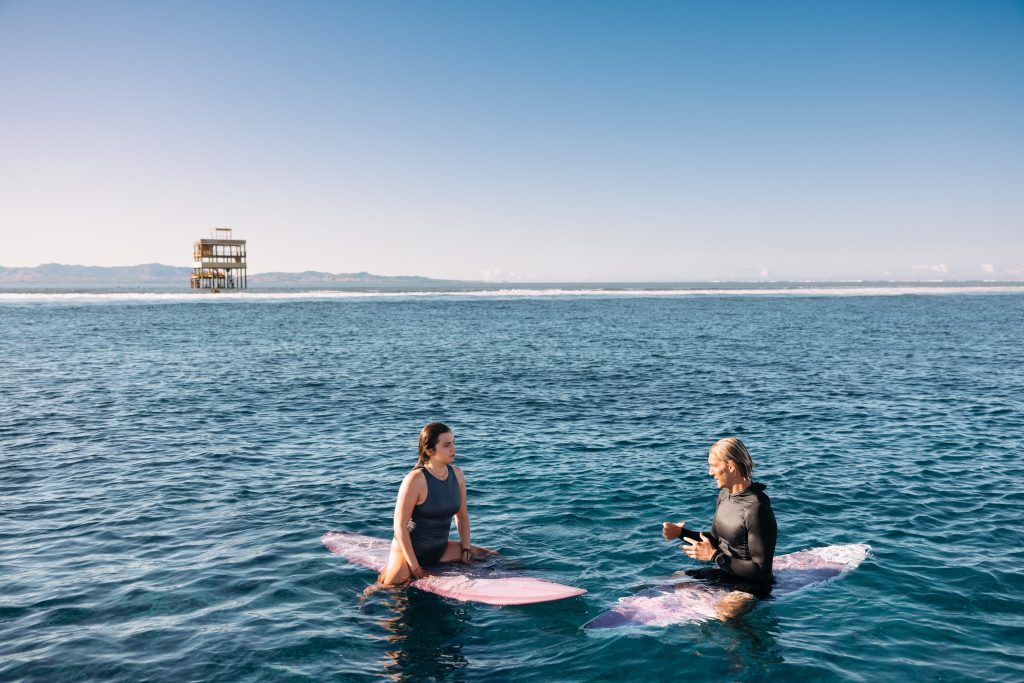
Gardens, Bees & Chickens
▪ We maintain organic gardens where we cultivate fruits, vegetables, and aromatic herbs, ensuring a sustainable source of fresh produce.
▪ 10 beehives are kept on-site, contributing to the preservation of pollinators while yielding approximately 160kg of organic honey in 2023.
▪ The Cluckingham Palace is home to 100 hens that provide a steady supply of nutritive multi- colored eggs, further enhancing our commitment to sustainability and self-sufficiency.
Guest Engagement & Sustainability Touchpoints
▪ The Earth Lab, serving as the heart of sustainability, is a distinctive space devoted to interacting with guests and discussing our ongoing sustainability initiatives.
▪ Daily workshops engage both guests and hosts in hands-on activities that promote a sustainable lifestyle.
▪ The “Sustainability Tour” offers a unique opportunity to explore key sustainability initiatives throughout the resort, including the productive garden, the desalination plant, composting area and sorting center.
▪ We commemorate significant awareness days such as Earth Day, International Day of the Forests, and World Environment Day, further fostering our commitment to the environment.
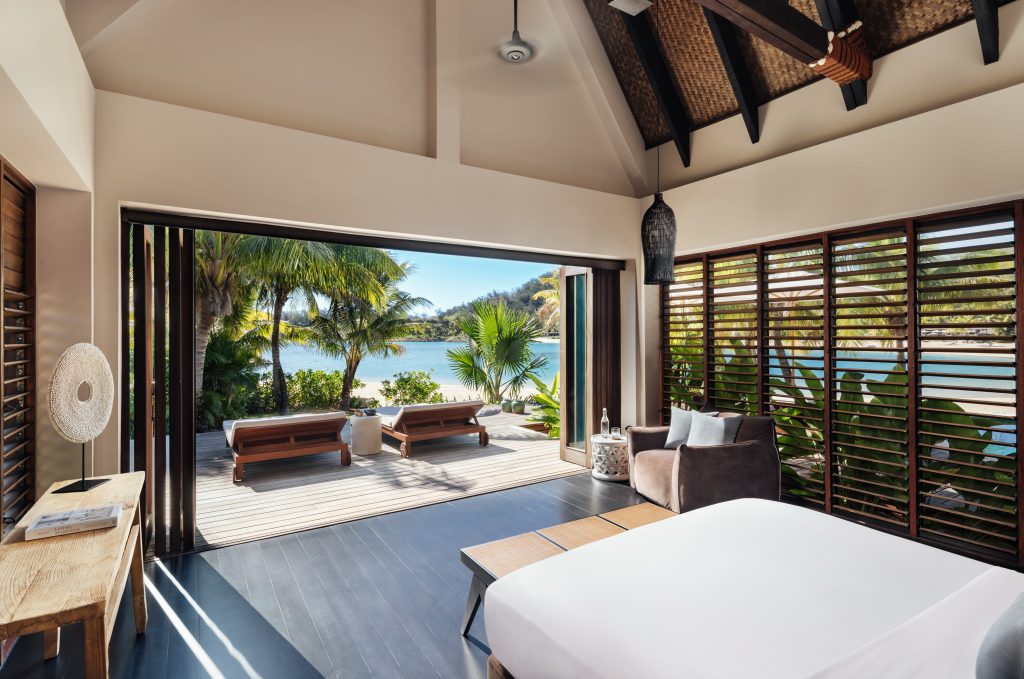
Sustainability Fund
The Sustainability Fund, comprising 0.5% of our total revenue, sales from Iggy our soft toy, and generous guest donations, enables us to endorse projects that enhance community health and well-being, bolster education, safeguard the environment, and preserve biodiversity on Malolo Island.
▪ Iggy, the Fijian Crested Iguana, this lovely creature is not only cute and cuddly, it also represents a critically endangered native species. 100% of the profit go towards the Sustainability Fund to support local environmental and social projects. Guests will find Iggy having a little nap in their room at their arrival.
▪ Iguana Conservation: we proudly host a population of the Fijian Crested Iguanas within the resort, in their natural habitat. The population has grown over the past years, with 40 iguanas counted in 2023 survey. Our focus is on safeguarding and expanding the habitat of these special residents.
▪ Reef Restoration: In 2023 we joined forces with the Coral Gardeners (CG) to restore the reef house, by entirely funding the first international branch of the group. In the last quarter of 2023, the Fijian team planted 10,900 coral fragments in the 3 local nurseries. Additionally, CG conducts weekly presentations in the resort to raise reef awareness.
▪ Reforestation: In collaboration with the Mamanuca Environment Society (MES), we are contributing to the restoration of terrestrial areas. Together we planted 1,333 trees in the local villages in 2023, including native species, fruits tree, and mangroves.
▪ Community Engagement: Our commitment extends to supporting Solevu village. In 2023, we provided 3 water tanks for storage, reconstructed a well-house, repaired a damaged bridge, donated 4 wheelchairs, and supplied school materials to support education in the community.
